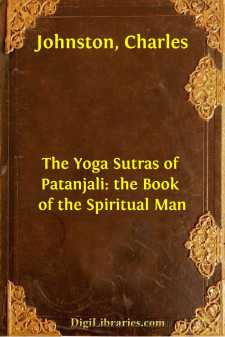Categories
- Antiques & Collectibles 13
- Architecture 36
- Art 48
- Bibles 22
- Biography & Autobiography 813
- Body, Mind & Spirit 142
- Business & Economics 28
- Children's Books 13
- Children's Fiction 10
- Computers 4
- Cooking 94
- Crafts & Hobbies 4
- Drama 346
- Education 46
- Family & Relationships 57
- Fiction 11828
- Games 19
- Gardening 17
- Health & Fitness 34
- History 1377
- House & Home 1
- Humor 147
- Juvenile Fiction 1873
- Juvenile Nonfiction 202
- Language Arts & Disciplines 88
- Law 16
- Literary Collections 686
- Literary Criticism 179
- Mathematics 13
- Medical 41
- Music 40
- Nature 179
- Non-Classifiable 1768
- Performing Arts 7
- Periodicals 1453
- Philosophy 64
- Photography 2
- Poetry 896
- Political Science 203
- Psychology 42
- Reference 154
- Religion 513
- Science 126
- Self-Help 84
- Social Science 81
- Sports & Recreation 34
- Study Aids 3
- Technology & Engineering 59
- Transportation 23
- Travel 463
- True Crime 29
Charles Johnston
Charles Johnston (1867–1931) was a British writer, translator, and prominent member of the Theosophical Society. A scholar of Sanskrit, he translated several key Indian texts into English, including "The Bhagavad Gita" and "The Yoga Sutras of Patanjali." Johnston was also a strong advocate for Theosophy, contributing extensively to its literature and promoting spiritual and philosophical ideas that blended Eastern and Western thought. He wrote several influential works, including "The Memory of Past Births" and "From the Upanishads."
Author's Books:
Sort by:
by:
Charles Johnston
I. VISIBLE AND INVISIBLE. Here is an image by which you may call up and remember the natural form and appearance of Ireland: Think of the sea gradually rising around her coasts, until the waters, deepened everywhere by a hundred fathoms, close in upon the land. Of all Ireland there will now remain visible above the waves only two great armies of islands, facing each other obliquely across a channel of...
more...
by:
Charles Johnston
The Yoga Sutras of Patanjali are in themselves exceedingly brief, less than ten pages of large type in the original. Yet they contain the essence of practical wisdom, set forth in admirable order and detail. The theme, if the present interpreter be right, is the great regeneration, the birth of the spiritual from the psychical man: the same theme which Paul so wisely and eloquently set forth in writing...
more...



